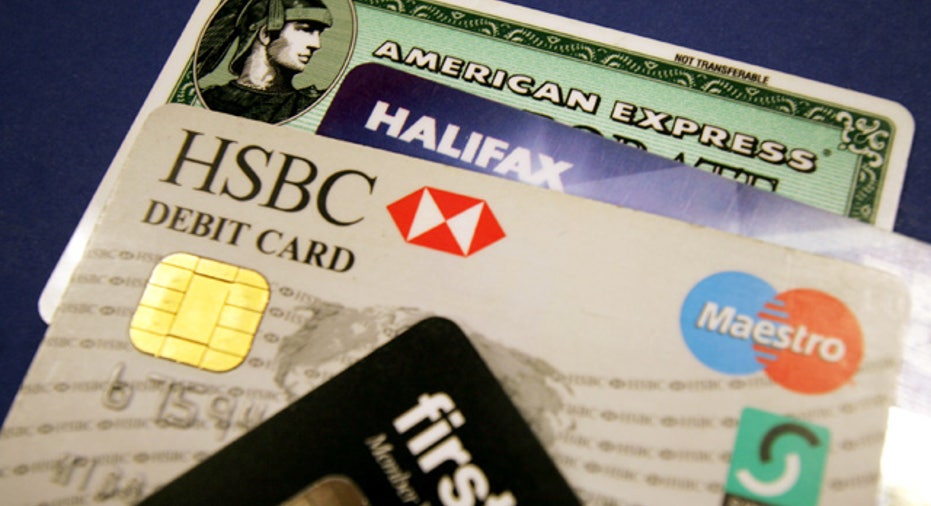How Can I Raise MY Debt Ceiling?

Do you have the best credit card you can qualify for? Maybe you did when you applied for your current card, but by now you may have improved your credit score or increased your income, and you think you deserve some extra headroom when it comes to making purchases. Or perhaps you have plans for home improvements or a vacation and would like to boost the rewards you earn on your best rewards credit card.
In a perfect world, a quick call to the credit card issuer would result in a personal debt ceiling increase, but Amber Stubbs, managing editor of CardRatings.com, says it is not that simple. Credit is tighter in 2011 and credit card issuers approve far fewer credit line increases than they did before the recession. Stubbs recommends making a phone call to the customer service department of your credit card issuer if you want to try for a higher spending limit.
"It's better to call than to write because that way you get interaction with a real person and (you) can state your case and answer questions on the spot," says Stubbs. Before you make that call to try to raise your personal debt ceiling, consider these six tips.
1. Know your current credit report
Be sure you know your credit status before you make the call, because you might trigger a decrease in your credit limit or even the possibility of a canceled credit card, says Stubbs.
"Pull your free credit report before you make the call to make sure there are no mistakes on it," says Stubbs. "Your credit line can be decreased even if the negative information is a mistake, and the credit card company won't necessarily raise it again."
If you have defaulted on a loan or have other derogatory information on your credit report, you may not get an immediate response from your credit card company, but you could get a letter six to eight weeks later lowering your credit limit, says Stubbs.
While it might appear reasonable for you to contact your credit card company when your balance is near the credit limit, Stubbs says requesting an increase at that time could result in a reduced credit line.
"The credit card companies see someone who has maxed out their credit as someone who cannot handle credit responsibly and is likely to default," says Stubbs.
2. Use your credit card wisely
Credit card companies, says Stubbs, want customers who use their card often and responsibly. Rewards cards lend themselves to this kind of use.
"If you use your card for monthly expenses like gas and groceries and then pay off the balance in full each month, the credit card company is getting the benefit of transaction fees," says Stubbs. "They don't particularly like customers who let their card go dormant even if the balance is paid in full, because they are not earning any money from that customer." And accordingly, they are less likely to increase your credit limit.
3. Pay off your balance
If you carry a balance, Stubbs says you should pay as much as you can each month to reduce the balance quickly.
"If you pay only the minimum, you are unlikely to be approved for a credit line increase, because to the credit card company, this looks like you are in over your head," she says. "Even paying two times the minimum may not be enough."
4. Be selective when applying for more credit
If you are trying to build credit, you may be looking at one of the best credit cards while also trying to increase the limits of your current card. Be careful before applying for a new card if you also intend to request an increase on your current card.
"If you have a long history with your creditor and apply for one new credit card, it shouldn't make a difference when you ask for an increase," says Stubbs. "But if you have a shorter credit history with younger accounts and you have applied for several new cards at once, that can be a red flag to your current credit card issuer."
5. Keep an eye on your credit score
Credit card companies look for responsible use of credit. Stubbs says that while it used to be considered good to keep your credit use to less than 30 percent of your available credit, now it takes about 10 percent usage or less to be considered an excellent credit risk.
"Consumers need to be aware that the balance must be paid before the statement is generated to avoid having it appear on their credit report and lowering their credit score," she says. "This isn't an issue unless you are intending to apply for a mortgage or new credit and need your score to be higher, because your credit card company will know that you are not carrying a high balance."
6. Present your case
When calling your credit card company, Stubbs says, you should be prepared to explain your request.
"It probably doesn't really matter how much you ask for, because they will make the determination themselves whether to approve an increase and for how much," she says. "You may be asked for a valid reason for the request, such as a balance transfer, home repairs or perhaps the need for emergency medical care while you are overseas. You wouldn't want to say that you intend to go on a shopping spree."
The original article can be found at CardRatings.com:How can I raise MY debt ceiling?
Related Links



















